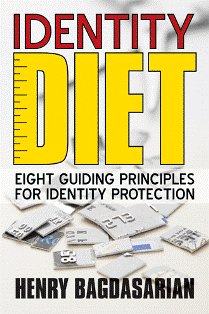|
Holiday Identity Theft Scams
Holiday identity theft scams are the usual scams facing consumers throughout the year which tend to increase during the holiday season because more people are out there not only shopping and using their credit or debit cards but also sharing increasing amount of personal information in more than one way as we will find out. Increased sharing of personal information is normal during the holidays not only because of heavy usage of the plastics but also because people send greeting cards sometimes sharing their home address with strangers. People also send and receive more emails which they tend to over trust potentially allowing some holiday identity theft scams to succeed. There are also many concerns with shopping online. Other than using debit and credit cards, we have to share billing and shipping information with new merchants for product ordering and delivery which even adds more to the identity theft risks. We have to consider the trust level of some of the sites we visit especially the ones we consider sharing personal information with. As people enter the holiday season and increase their exposure to increased holiday identity theft scams, they must take certain precautions during the cheerful season: 1. Avoid using new merchants unless you have to – using new merchants means sharing personal information with yet another business you can not fully trust. Unless this merchant provides items no one else offers, you are better off shopping from a merchant you’ve done business with since you have already shared your information with them. 2. Use credit card instead of debit card – read this article to find out why. 3. Avoid small amount transactions using debit or credit card because it’s not worth it. Use cash and avoid sharing personal information as much as possible especially for small items such as coffee. 4. Consolidate purchases as much as possible and shop from fewer merchants as possible. If a merchant offers multiple products you are planning to purchase, it makes more sense to buy most of your products from a single or fewer merchants to reduce the number of your transactions. 5. Avoid using your return address on holiday card envelopes. Not only there is no need to include a return address on the greeting card envelopes, they could also be lost or stolen adding to your risks. 6. Use ATMs fewer times by planning in advance the amount of cash you’ll need for the near future. Use mostly bank ATMs especially the ones inside the banks as they are less likely to be tampered with. 7. Review the contents of your wallet and purse. Take out unused credit cards and other identity components and store them in a safe place at home. The last thing you want to deal with during the holidays is to figure out the contents of your lost or stolen wallet and unknown numbers of organizations to contact and notify about the case. 8. Don't trust merchant links in emails. Instead, type their web address and go to their site directly. The holiday identity theft scams include increasing numbers of spam emails and phishing scams looking for personal information to empty bank accounts and other identity fraud purposes. 9. When shopping online, access the Internet from your home or personal office. Most public networks and workplace Internet access can be potentially monitored and your information can be disclosed to others. Read other related articles after reading holiday identity theft scams. |